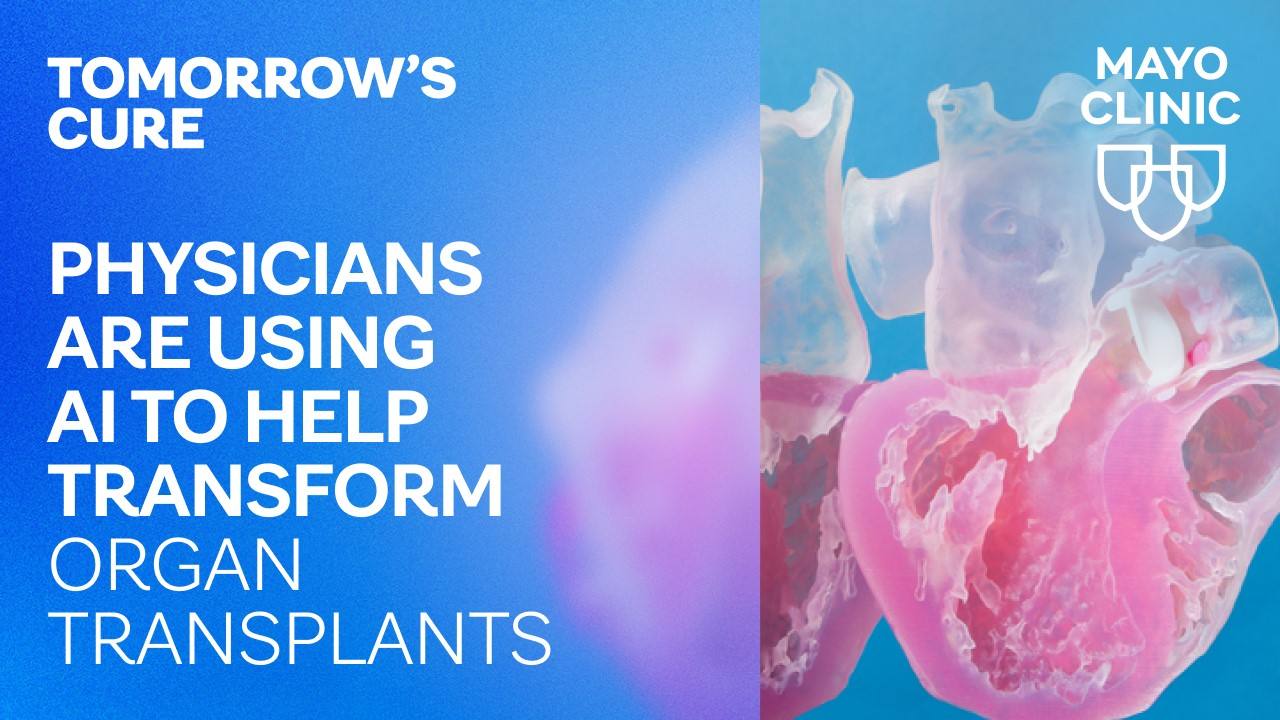Transplant

July 31, 2024
How is artificial intelligence used to improve all parts of the organ transplant process? On the latest episode of Tomorrow's Cure, learn about the efforts[...]
December 1, 2014
November 21, 2014
October 24, 2014
July 4, 2014
July 2, 2014
Explore more topics
 Sign up
Sign up

Mayo Clinic Connect
An online patient support community
